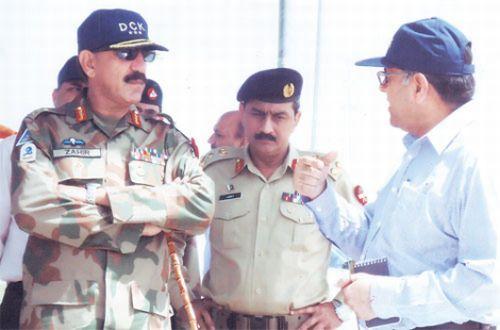
After the Shakil Afridi episode, both sides are back to where they were, with ties strained and reconciliatory efforts coming to a standstill, says Amir Mir
Amidst the hullabaloo between Islamabad and Washington over the sentencing of Dr Shakil Afridi, who helped the United States track down Al Qaeda chief Osama bin Laden, Inter Services Intelligence's new director general, Lieutenant General Zaheerul Islam, has postponed his scheduled visit to the United States as retaliation for a series of public rebukes by the Barack Obama administration.
The message the Pakistani security establishment is trying to send by cancelling the ISI chief's Washington visit is that the all powerful khaki decision-makers in the garrison town of Rawalpindi are not yet ready to forgive the US administration for the November 24, 2011, North Atlantic Treaty Organisation air-strike which had killed 24 Pakistani soldiers.
Zaheerul Islam was scheduled to travel to Washington this week at the invitation of Central Intelligence Agency chief David Patreaus to discuss issues related to the counter-terrorism cooperation.
Click on NEXT for more...
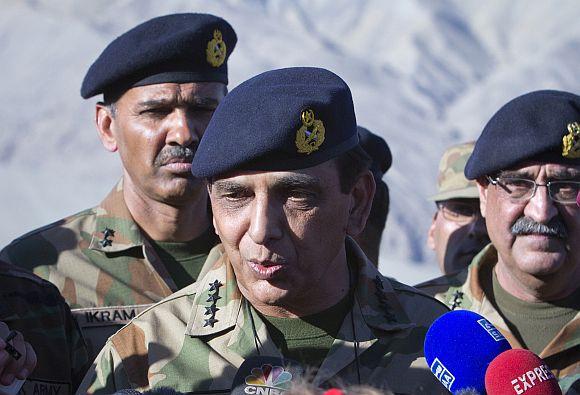
Zaheer, 56, who took charge of the ISI as its 20th director general on March 18, was promoted by Prime Minister Yusuf Raza Gilani on the advice of Army Chief, General Ashfaq Pervez Kayani. He replaced Lieutenant General Ahmed Shuja Pasha, who failed in his efforts to secure a third extension to his term. Not much is known about the new ISI DG, but it is clear that he is the choice of the powerful Pakistan Army chief.
The consensus view in Pakistan's military circles is that General Ashfaq Kayani has cemented his control over the spy agency with the appointment of a close confidant at a time when difficult challenges lie ahead.
But the consensus is also that the change of guard is unlikely to bring about a sea-change either at the ISI headquarters or in its so-called geo-strategic agenda because the new ISI chief will keep pursuing the policies of the army chief. Therefore, the cancellation of the ISI chief's Washington trip is not that unusual.
An army spokesman said the other day that the ISI DG had postponed his visit to the US due to his pressing commitments in the country and there was no other reason for postponing the trip.
Click on NEXT for more...
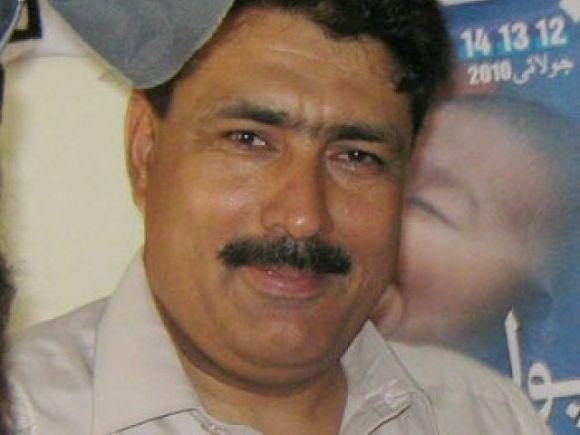
But a well-placed military official in Rawalpindi said the ISI chief's visit had been put off owing to the row over Dr Shakil Afridi, who was awarded a 33-year sentence by a tribal court for being a CIA agent. He was of the view that the postponement of the visit should be seen as a snub by the Obama administration which has reacted bitterly to the sentencing of Afridi, although it was an internal affair of Pakistan.
The military official said the US reaction has caused great harm to the ongoing efforts between Islamabad and Washington to resolve the row between the two sides over the reopening of NATO supply lines, which Pakistan had closed about six months ago when an American aircraft raided its border posts and killed 24 soldiers.
Well-placed foreign ministry officials in Islamabad said the ISI chief's visit was mutually planned and the two sides were expected to conclude negotiations on key contentious issues, including reopening of NATO supply lines.
The Pakistani security establishment was hopeful that the Obama administration would agree to pay $3,000 to Pakistan as tax on every NATO truck crossing to Afghanistan, besides releasing to Islamabad the over $1 billion in coalition support funds it is withholding.
Click on NEXT for more...
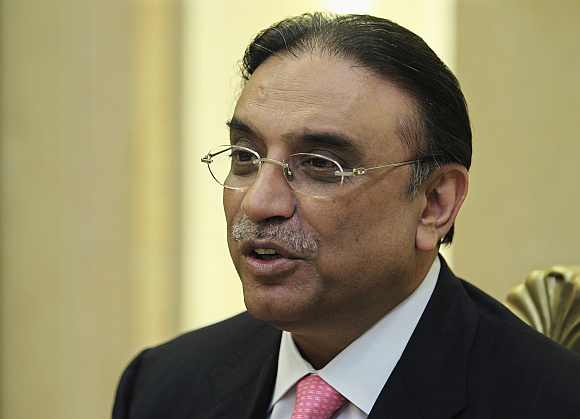
Nonetheless, following the Shakil Afridi episode, both sides are now once again back to where they were, with ties strained and reconciliatory efforts coming to a standstill. Foreign ministry officials said the Obama administration must realise that Afridi's sentence was purely Pakistan's internal matter and the Obama administration should stop victimising Pakistan for the sake of a Pakistani citizen.
Pakistani President Asif Ali Zardari's disastrous Chicago trip [where he was publicly snubbed by US President Obama] was barely fading from public memory when a tribal court in the Federally Administered Tribal Areas of Pakistan convicted and sentenced Shakil Afridi.
Afridi has been hailed in the US as a hero in the fight against the Al Qaeda.
In yet another disturbing development for the Pakistani security establishment, Islamabad's all-weather friend China has privately advised Islamabad to avoid taking extreme positions in its relationship with the US.
Click on NEXT for more...
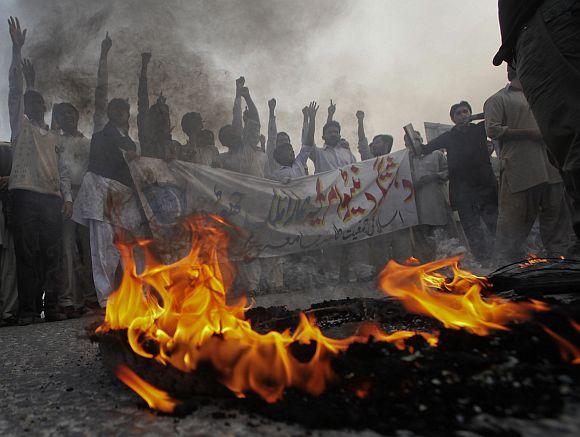
The message was delivered by Chinese Foreign Minister Yang Jiechi, who held extensive discussions with Pakistan's top civil and military leadership during his just-concluded trip to Islamabad.
The highlight of his visit was China's emphasis to the world to recognise Pakistan's sacrifices in the war against terrorism and back Islamabad's efforts to safeguard its sovereignty, territorial integrity and dignity. The carefully-worded remarks appeared to be aimed at the US, which has questioned Pakistan's credentials in the ongoing fight against militancy.
But well-placed foreign office sources in Islamabad say the Chinese foreign minister privately conveyed a word of wisdom to the Pakistani leadership on how to deal with the US, adding that Beijing wants to see a breakthrough in the lingering stalemate between Islamabad and Washington.
Pakistan's leading English newspaper The Express Tribune has commented on the Pakistan-US tiff in its May 31 editorial note in the following words: 'Pakistan's attendance at the NATO Chicago conference and negotiations over reopening the suspended NATO's supply routes went a long way towards normalising the Pak-US relations. However, the ISI chief's refusal to meet with his American counterparts in Washington may halt that progress. That would neither be beneficial for a military that is reliant on the United States for its financing nor for the Americans who need an ally in the region, no matter how shaky the relationship is. The time for posturing on both sides is over. Only through constant meetings and dialogue will the trust level between them increase'.
Click on NEXT for more...
...